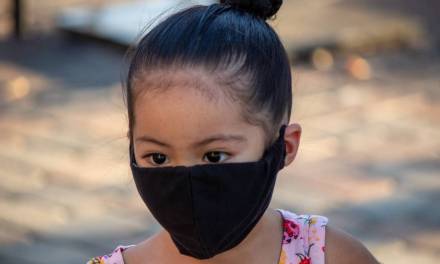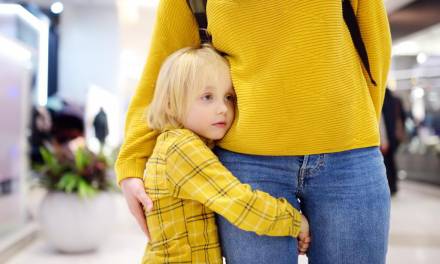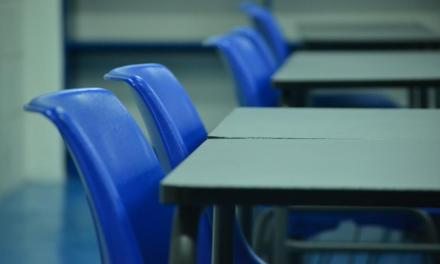The new academic year will begin in England next week – and secondary school pupils in local lockdown areas will need to wear face masks.
Across the country, headteachers will have flexibility to introduce face masks in their school.
What do you think to the new rules? Let us know in the comments below.
Guidance on face masks
The new guidance applies to school corridors in local lockdown areas in England.
Prime Minister, Boris Johnson said “it probably does make sense in confined areas outside the classroom to use a face covering in the corridor and elsewhere.”
However, the Government ruled out wearing a face covering whilst learning.
You can’t teach with face coverings and you can’t expect people to learn with face coverings. It would be nonsensical.
Education Secretary, Gavin Williamson said that the Government was “listening to the latest medical and scientific advice and taking the most precautionary approach.”
In communal areas, such as corridors it will be difficult to maintain social distancing. Schools can also use face coverings “when they believe that it is right in their particular circumstances.”
The new guidance will apply from 1 September.
Will schools be provided with PPE?
The Department for Education has said all schools would be supplied with 10 coronavirus testing kits to be used in exceptional circumstances.
They would also provide “a small amount” of personal protective equipment such as aprons, gloves and clinical face masks.
What are the rules on face masks in schools in the rest of the UK?
Schools in Scotland had already implemented face coverings and Northern Ireland is recommending face masks in secondary school corridors.
In Wales the decision has been left to headteachers, but has highlighted advice which recommends them where social distancing cannot be ensured – such as school transport.
Read more: a unique idea to ensure kids wash their hands
How do schools feel about face masks?
Clare Darby, head of Rawlins Academy in Quorn said the changes to face mask guidance “doesn’t help”.
She said the Department for Education only provided a “returning to school” pack on Tuesday – which she said “says it all”.
Gillian Brady, assistant principle at the school added:
They’ve said they’ve told schools well in advance, but in Leicestershire we were given little or no notice.
They’ve announced it at 10pm and we had students back at 8:30am the next day.
Leicestershire schools are facing a lot more challenges than elsewhere in the country.
Meanwhile some parents said they wanted to see face coverings mandatory in all secondary schools.
Pamela Allen a parent from Canterbury said:
I think (the Government) should be leading the charge against the virus as opposed to reacting to it if there is a local lockdown. It would make us feel confident that we are sending our children to a safe a place as we can.
Some schools had also introduced policies to enforce face masks.
The Oasis Academy trust, which has more than 50 schools in England, is to provide visors for teachers and secondary schools in areas would have to wear face masks in corridors.
Steve Chalke, chief executive of the trust, said there was a responsibility to make schools “as safe as we possibly can.” He also said that the use of masks might increase the confidence of parents nervous about sending their children back to school.
What are the issues which could arise from face masks?
Many children need support while new rules and routines are put in place. Any move towards face coverings also poses problems for the school to deal with:
- How do you stop teenagers messing around with face coverings?
- Do you allow any type and any pattern?
- What should you do if a child’s anxiety means they want to wear their face mask at all times?
The use of face masks and these challenges could cause problems to lessons and could lead to low level disruptive behaviour. There could be a rise in bullying and other challenges for schools as a result of the coronavirus pandemic. The need to enforce face coverings could also pose challenges for teachers. It could result in increased confrontation, mirroring a theme seen in retail since face coverings became mandatory in shops.
What can EDClass do to help?
EDClass has produced a number of behaviour lessons and work sessions for students to follow through when they have behaved inappropriately.
These lessons have been assembled so that they address Ofsted’s requirements for behaviour work.
Our online platform is ideal for use in inclusion units and for students who have been excluded.
A range of 11,000+ lessons means students can receive essential learning consistent with the curriculum up to GCSE level. It has a proven record of improving engagement in education and subsequently attainment.
Read our case studies here.
For more information call 01909 568 338.










